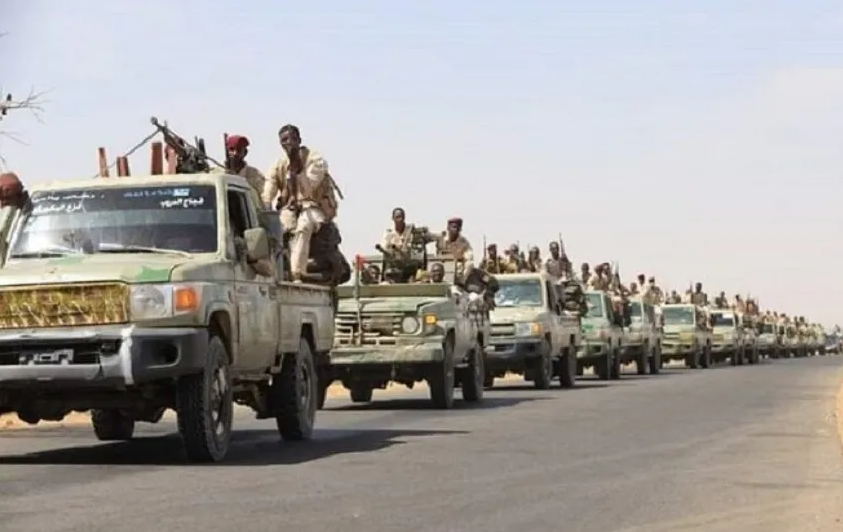War is cruel. When conflict erupts, it shatters lives, disrupts communities, and leaves people in utter confusion. As Bertrand Russell aptly put it, “War does not determine who is right—only who is left.” War changes those who live through it forever, leaving behind scars that time may never fully heal.
On a recent episode of What’s On Your Shelf? podcast, I had the privilege of speaking with Patience Ashianze, a high school teacher who experienced firsthand the trauma and horror of war while working in Khartoum, Sudan. Her story is one of courage, resilience, and the deep scars left behind by conflict. When war broke out, she, along with many others, found herself caught in a state of uncertainty and fear. Their evacuation journey from Sudan to Kenya, through Ethiopia, was fraught with anxiety, and to this day, the memories of that experience continue to haunt her.
Patience’s story is a stark reminder of the countless individuals who have been displaced and deeply affected by war—not just in Sudan but in various parts of the world. War does not discriminate; it devastates men, women, and children alike, leaving in its wake psychological and physical scars that persist for generations.
Her story made me think about the many people across the world who have suffered due to war. The horrors of armed conflict are not unique to Sudan; history has seen nations and communities torn apart by violence, and in each case, innocent people bear the brunt of it.
Rwanda: The Horror of Genocide
The 1994 Rwandan Genocide remains one of the most haunting tragedies of the 20th century. Within 100 days, nearly 800,000 people—primarily Tutsis and moderate Hutus—were slaughtered in a campaign of ethnic cleansing. Survivors were left with deep physical and emotional scars. Many still live with the trauma of witnessing their families being murdered before their eyes. The psychological wounds of the genocide continue to shape Rwanda today, with efforts at reconciliation and healing ongoing.
The Democratic Republic of Congo: A Nation in Perpetual Conflict
The war in the Democratic Republic of Congo (DRC), often referred to as Africa’s World War, has claimed millions of lives. The conflict, which started in the late 1990s, saw multiple armed groups, foreign forces and militias fighting for control over the country’s vast natural resources. Rape was used as a weapon of war, and children were forced to become soldiers. While efforts have been made to try stabilize the mineral-rich nation, violence continues with the recent rise of conflict between the the government forces and the M23 rebels who are alleged to be supported by Rwanda. Many Congolese people live in fear of renewed conflict every morning with dozens having fled the conflict into neighboring countries.
South Sudan: A Nation Struggling for Peace
In 2011, South Sudan gained independence from Sudan, sparking hope for a peaceful future. However, internal power struggles soon led to a devastating civil war, displacing millions. The war has caused extreme suffering, with famine, ethnic violence and displacement characterizing much of the country’s recent history. The cycle of war has left deep scars on the people of South Sudan, many of whom still live in refugee camps, uncertain of their future.
Gaza: Endless Suffering
The ongoing Israeli-Palestinian conflict, particularly in Gaza, has resulted in unimaginable suffering. Periodic escalations have left civilians, especially children, deeply traumatized. Families have been displaced, homes destroyed and entire communities uprooted. The blockade and constant fear of airstrikes have made life unbearable for many in Gaza. The psychological toll of war on children in the region is profound, with many reported to be suffering from PTSD, anxiety and depression.
Ukraine: A Modern-Day Tragedy
Since Russia’s invasion of Ukraine in 2022, the world has witnessed another humanitarian catastrophe unfold. Cities have been bombed, families torn apart and millions forced to flee their homes. The war has not only devastated Ukraine but has also had a ripple effect on global economies, food security and geopolitics. Civilians, especially the elderly and children, have been left to bear the brunt of the violence, facing cold, hunger, and the trauma of war. There is renewed hope of an end to this conflict with many twists and turns between the mediators and the waring factions.
The Innocence Lost
In all these wars, the most heartbreaking reality is the suffering of innocent children. They are forced to witness horrors no child should ever see. Many lose their parents, their homes and their sense of security. They grow up knowing nothing but war, robbed of their childhood and opportunities for a normal life.
Patience’s story made me reflect deeply on these conflicts and the silent struggles of those who survive them. War is more than just a battle between nations; it is a human tragedy that leaves its victims with invisible wounds. The pain lingers long after the last gunshot is fired, and the need for healing, reconciliation and peace remains urgent.
As we continue to hear these stories and engage in these conversations, may we always remember the real cost of war—the human lives forever altered by it. Let us work towards a world where such stories are no longer a reality, where war is not the answer, and where peace prevails.
To listen to the full conversation with Patience here: https://www.youtube.com/watch?v=j46-mYxit9M&t=15s







